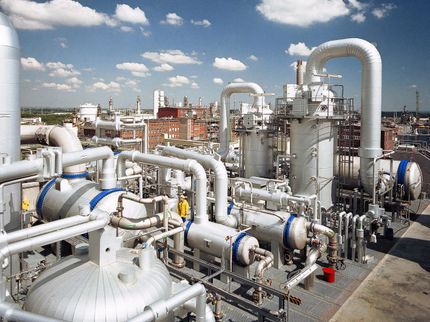BASF to invest in its aroma ingredients business by expanding its global production footprint with new plants in China and Germany
Advertisement
BASF announced its investment in a new citral plant as part of its Verbund site in Zhanjiang, China, and menthol and Linalool downstream plants at its Verbund site in Ludwigshafen, Germany. These plants are expected to come on stream from 2026 onwards. The investment is driven by a growing demand from the global flavor and fragrance market and BASF’s strong commitment to sustainability transformation.

Symbolic image
Computer-generated image
This investment will expand and diversify BASF’s aroma ingredients’ citral value chain footprint in Germany and Malaysia and support customers’ growth opportunities. The citral plant in China will strengthen BASF’s position in key growth regions and increase production of a broad range of aroma ingredients and further downstream products globally. With the investment, BASF’s annual capacity of citral will increase to 118,000 metric tons.
“The expansion of our global production network benefits our customers in the flavor and fragrance industry by further strengthening supply security. Investing in Zhanjiang is also a significant step towards sustainable production and addressing our customers’ demands for products with a lower carbon footprint,” said Thilo Bischoff, Senior Vice President, BASF Aroma Ingredients.
Strong commitment to sustainability transformation
The full integration of the new plants into the Verbund sites in China and Germany enable BASF to use resources optimally and create synergies efficiently. At the Zhanjiang Verbund site, BASF further accelerates its plan to power the entire Zhanjiang Verbund site with renewable electricity and targets to achieve 100% by 2025. The company will also implement advanced automation and process technologies for optimal plant operation at this site, thus reducing energy consumption and emissions. The integration of the new menthol and linalool downstream plants into the Ludwigshafen site leverages existing Verbund structures and advanced production technologies.
“BASF Zhanjiang Verbund site is set to be a role model for sustainable production, which was a key decision factor in the location of the new citral plant. Along with the integration of our new downstream plants into the Ludwigshafen production Verbund site, our commitment to sustainability is central to our business and investments,” said Bischoff. “Reducing the CO2 emissions in our value chain and the product carbon footprint of our aroma ingredients portfolio, as well as introducing renewable feedstock is of utmost importance for the Aroma business.”
The use of BASF’s biomass balance approach is one example of how the company is addressing customers’ demand for renewable aroma ingredients. BASF will also further develop its leading fermentation-based portfolio in its subsidiary - Isobionics (located in Geleen, the Netherlands) to meet the growing demand for natural aroma ingredients.
























































